Is there any simple mechanism for overriding Django settings for a unit test? I have a manager on one of my models that returns a specific number of the latest objects. The number of objects it returns is defined by a NUM_LATEST setting.
This has the potential to make my tests fail if someone were to change the setting. How can I override the settings on setUp() and subsequently restore them on tearDown()? If that isn't possible, is there some way I can monkey patch the method or mock the settings?
EDIT: Here is my manager code:
class LatestManager(models.Manager):
"""
Returns a specific number of the most recent public Articles as defined by
the NEWS_LATEST_MAX setting.
"""
def get_query_set(self):
num_latest = getattr(settings, 'NEWS_NUM_LATEST', 10)
return super(LatestManager, self).get_query_set().filter(is_public=True)[:num_latest]
The manager uses settings.NEWS_LATEST_MAX to slice the queryset. The getattr() is simply used to provide a default should the setting not exist.
